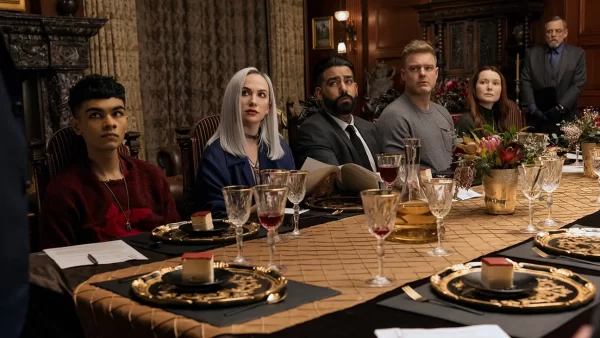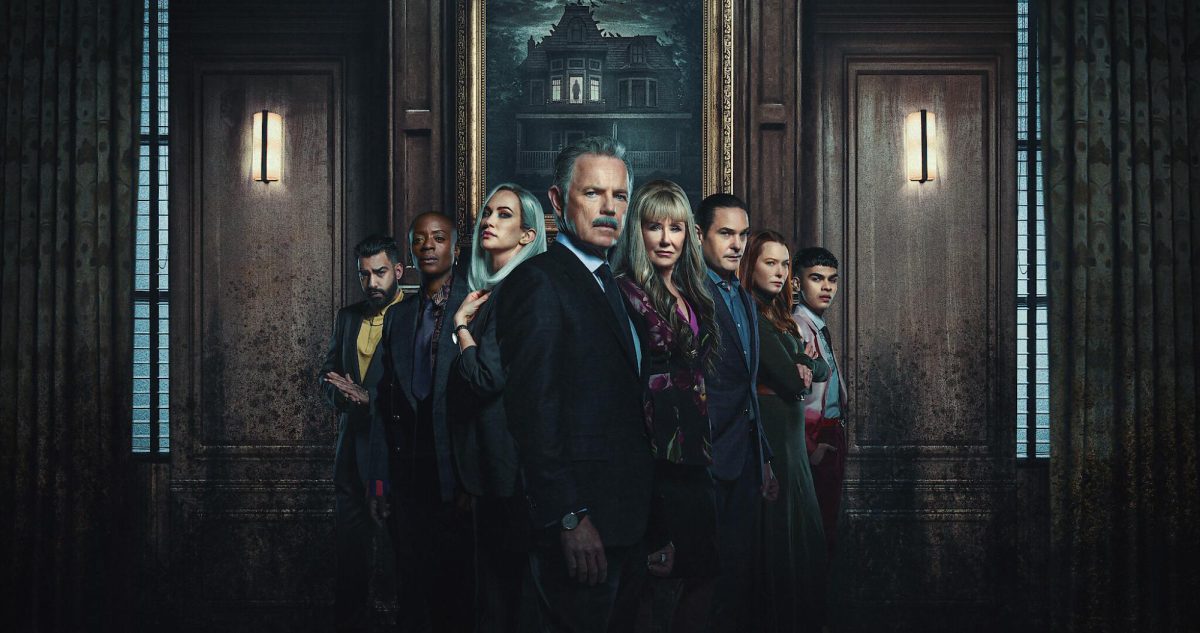Netflix’s latest horror miniseries “The Fall of the House of Usher” is a perfect blend of supernatural horror, dark comedy and compelling drama. In just eight episodes, Director Mike Flanagan serves up the deliciously dark tale just in time for Halloween.
The story follows the crumbling of a multi-billion dollar family empire led by Roderick Usher (Bruce Greenwood), his twin sister Madeline (Mary McDonnell) and his six adult kids. With the family pharmaceutical company under investigation and the attorney general (Carl Lumbly) claiming to have an informant in the family, chaos ensues as the family turns on each other.
Set in 2023, the show’s writing satirizes modern wealth culture and sharp pop culture references, all while maintaining a dark supernatural twist. With an impressive ensemble cast including familiar faces like Mark Hamill (Star Wars) and Carla Gugino (Spy Kids), the show is a 21st-century re-imagining of the gothic horror writer Edgar Allen Poe’s 1839 story of the same name, keeping core themes and motifs alive while changing much of the story.
The modern take on the Poe story is a long-awaited show from the mind of writer-director Mike Flanagan, a frequent Netflix collaborator most known for his recent work on miniseries like “The Haunting of Hill House” and “Midnight Mass.”
His series are often adapted from the works of acclaimed horror writers like Stephen King, Shirley Jackson and, most recently, Edgar Allen Poe. His work pushes the boundaries of horror, with storylines exploring the darkness of real-life issues like corruption, addiction, generational curses and human nature.
Working with indie film production company Intrepid Pictures and cinematographer Michael Fimognari, Flanagan has made a memorable addition to his masterful filmography.
With eight one-hour-long episodes almost all ending on grisly cliffhangers, “The Fall of the House of Usher” is meant to be binged.

After establishing the complex story in the first episode, the series documents the literal and metaphorical fall of the Usher family. The episodes are a series of flashbacks not for the faint of heart, documenting the gruesome deaths befalling the members of the Usher family.
For horror and literature fans alike, Flanagan’s imagining of Poe’s dark story is rife with references to the poet’s other works, including the well-known classics — such as episodes named after and inspired by “The Tell-Tale Heart” and “The Raven” — as well as his deeper cuts, including The Pit and the Pendulum. The dialogue also interpolates Poe’s poems, keeping the gothic feel alive through the modern storytelling.
Overall, the writing shines in the retelling of the story. With a biding satire reminiscent of recent releases like “Knives Out” and “Succession,” the show pulls no punches in its depiction of absurd wealth. The characters are written to be theatrical, larger-than-life anti-heroes that we delight in seeing rise and ultimately fall.
With recurring themes and motifs, including a mysterious shape-shifting being named Verna, it’s hard to watch the show without instantly needing to know how it ends.
If you’re looking for intelligent, complex horror full of foreshadowing and memorable payoffs, this show is worth the watch. With a 91% on Rotten Tomatoes and a spot in Netflix’s Top 10 most viewed, the show is twisted and compelling all the way until the end.








